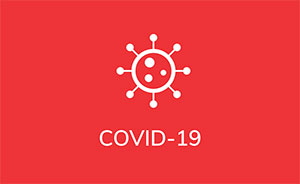This article has been medically reviewed by Dr. Brian Koffman on May 10, 2023.
The Bottom Line:
Most patients who are in watch and wait with early-stage untreated chronic lymphocytic leukemia (CLL) or small lymphocytic lymphoma (SLL) produced detectable antibodies in response to COVID-19 vaccination. However, levels of normal B cells were not statistically predictive of COVID-19 vaccine response.
Who Performed the Research and Where Was it Presented:
Dr. Andrew Rawstron from Leeds Cancer Centre and colleagues presented the results at the American Society for Hematology (ASH) Annual Meeting in 2022.
Background:
B cells are the primary antibody-producing cell of the immune system. However, CLL and SLL are cancers of the immune system, more specifically a cancer of the B cells, which results in impaired immune responses. Therefore, those with CLL / SLL can have reduced responses to all types of vaccines because the impaired B cells often do not have the ability to make enough functioning antibodies. Therefore, researchers are trying to understand what determines who responds to vaccines.
In this video, Dr. Brian Hill, Director of the Lymphoid Malignancies Program and a Staff Physician at the Cleveland Clinic’s Taussig Cancer Institute, interviewed Dr. Andrew Rawstron, a Professor at the University of York and a clinical scientist at the Leeds Teaching Hospitals NHS Trust. They discussed research on B cells and responses to COVID-19 vaccination in patients with CLL / SLL.
Methods and Participants:
Samples for this study were obtained from an extensive monitoring program for early-stage CLL / SLL in the United Kingdom. Participants provided their blood samples at regular intervals, then the samples underwent several lab analyses which included determining the number of CLL cells that were present. For this study, CLL cells were removed from the blood samples, then the normal B cells were analyzed. In addition, COVID-19 antibody levels were measured in patients who had received a COVID-19 vaccination within the previous 11 months.
Results:
- Ninety-two patients were included in the study (77 with CLL / SLL and 15 with monoclonal B-cell lymphocytosis [MBL]).
- The majority of patients had an antibody response to COVID-19 vaccination: 83% of untreated CLL / SLL patients and 93% of MBL patients.
- The total number of normal B cells was substantially lower in patients who did not have an antibody response to COVID-19 vaccination.
- Naïve B-cells are defined as those that typically have not yet been exposed to antigen (virus or bacteria), so they haven’t been stimulated to produce an antibody yet. Once exposed to an antigen, the naive B cells either become a memory B cell or a plasma cell that then secretes antibodies that are specific to the antigen to fight off the foreign substance in the body. 63/66 (95%) of those with a naïve B-cell count greater than 2/uL had a detectable antibody response, compared to only 18/26 (69%) of those with a naïve B-cell count less than 2/uL.
- There was no clear threshold for any B cell subset that seemed to predict what a detectable response to COVID-19 vaccination would be.
- Of the 26 people with CLL/MBL and a naïve B-cell count less than 2/uL, none of the 18 who had an antibody response to SARS-CoV-2 died during the average 9 months of follow-up, while 3/8 with no antibody response died from COVID-19 at 2, 3, and 6 months since assessment, all from COVID-19 infection.
Conclusions:
Most patients in watch and wait with early-stage untreated CLL / SLL produced detectable antibodies in response to COVID-19 vaccination. That’s good news. Levels of normal B cell counts were not reliably predictive of COVID-19 vaccine responses. And having an antibody response to vaccinations protected against death from COVID-19.
Discussion:
Measuring subclasses of B cells is not currently a practical clinical option. This research suggests that while there may be a relationship between low counts of naïve B cells and poor antibody responses, nothing statistically significant was found. More importantly, the much more easily measured presence of an antibody response to vaccination was, in this small study, predictive of protection from death due to COVID-19. While not the focus of this study on B cell subtypes and COVID-19, understanding the protection afforded by antibodies needs greater exploration.
Links and Resources:
Watch the interview on the abstract here:
You can read the actual ASH abstract here: High-Sensitivity Analysis of Normal B-Cell Subsets in MBL and Untreated CLL Identifies Patients with Sub-Optimal Sars-Cov-2 Antibody Responses
Take care of yourself first.
Ann Liu, PhD



